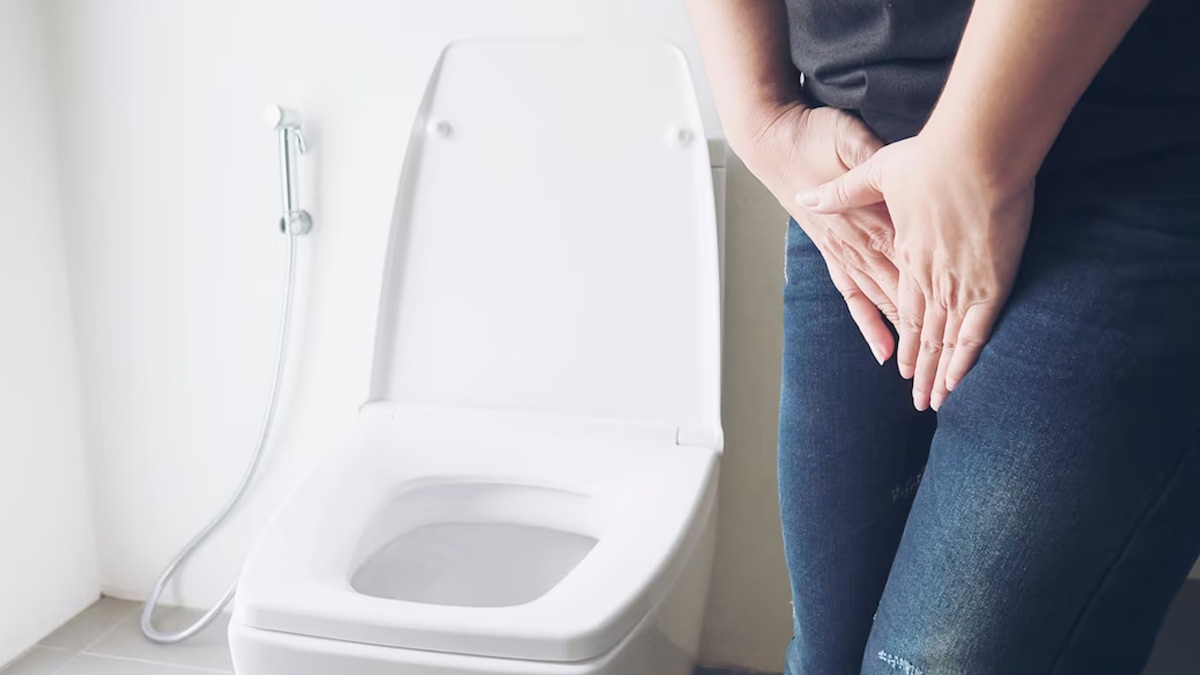
Have you ever wondered what your urine could be trying to tell you? It may sound peculiar, but the truth is, your pee can hold valuable clues about your health. One such condition is bladder cancer.
We spoke to Dr G Vamshi Krishna Reddy, Director, Oncology Services, Consultant Medical Oncologist and Hemato Oncologist, Yashoda Hospitals, Hyderabad, who listed the signs in your pee that could signal bladder cancer.
The urinary bladder stores the urine made by our kidneys and squeezes it out of our body periodically. Bladder cancer occurs when the cells lining the urinary bladder start to grow without control and form a tumour. Dr Reddy said that the risk for bladder cancer is higher in males, older patients, and smokers.
According to a study by the ICMR’s Subcommittee on Urinary Bladder Cancer, tobacco consumption is the most important risk factor for bladder cancer.

Symptoms Of Bladder Cancer In Your Urine
The symptoms of bladder cancer one needs to look for are as follows:
Hematuria (blood in the urine)
The passage of blood in urine (hematuria) is usually the first sign of bladder cancer. Hematuria caused by cancer is usually visible (turning the urine pink, orange or red), intermittent, and not painful.
Dr Reddy added that sometimes the blood in the urine may be very little and the urine may appear clear, but the blood can be detected in routine urine examination.

Back pain on the sides or above your pubic region
Dr Reddy said, "In some cases, bladder cancer can cause pain on the sides of your back or above your pubic area. This pain may be persistent or intermittent, and it can vary in intensity."
Painful urination
Experiencing pain or a burning sensation during urination can be a sign of various urinary tract conditions, including bladder cancer. If you notice this while passing urine, it is essential to have it assessed by a healthcare professional.
Also Read: From Risk Factors To Treatment: Know All About Urinary Bladder Cancer

Frequent urination or urgency
Bladder cancer can lead to changes in your urinary habits. If you find yourself needing to urinate more frequently than usual or experiencing a sudden urge to urinate that is difficult to control, it could be a cause for concern. A sense of partial bladder emptying or discomfort during urination may also be present alongside these symptoms.
How to prevent bladder cancer?
Dr Reddy listed some tips that you should follow to prevent bladder cancer, which are as follows:
Smoking is known to cause about half the cases of bladder cancer. Therefore, avoiding smoking and tobacco products can prevent bladder cancer.
Drinking plenty of water lowers a person’s risk of bladder cancer.
Maintaining a healthy diet with plenty of fruits and vegetables helps protect against bladder cancer.
Also Read: Follow These 5 Important Tips To Prevent Bladder Cancer
When To Consult Your Doctor?
Dr Reddy said that these symptoms can also be caused by conditions that are not bladder cancer, such as Urinary Tract Infection (UTI), stones in the bladder, or the presence of an enlarged prostate (in men). But if you have any of these symptoms, you should consult a doctor to find out the cause.
He further said, "Everyone over 50 who exhibits bladder cancer symptoms or indicators should have their kidneys, ureters, bladder, and urethra thoroughly examined." This evaluation includes urine tests, cystourethroscopy (direct visual inspection of the urethra and bladder), and an imaging test of the kidneys and ureters."
Disclaimer
This article contains information provided by a registered healthcare professional. However, we urge you to consult your expert for a diagnosis and treatment based on your body type and medical history.







